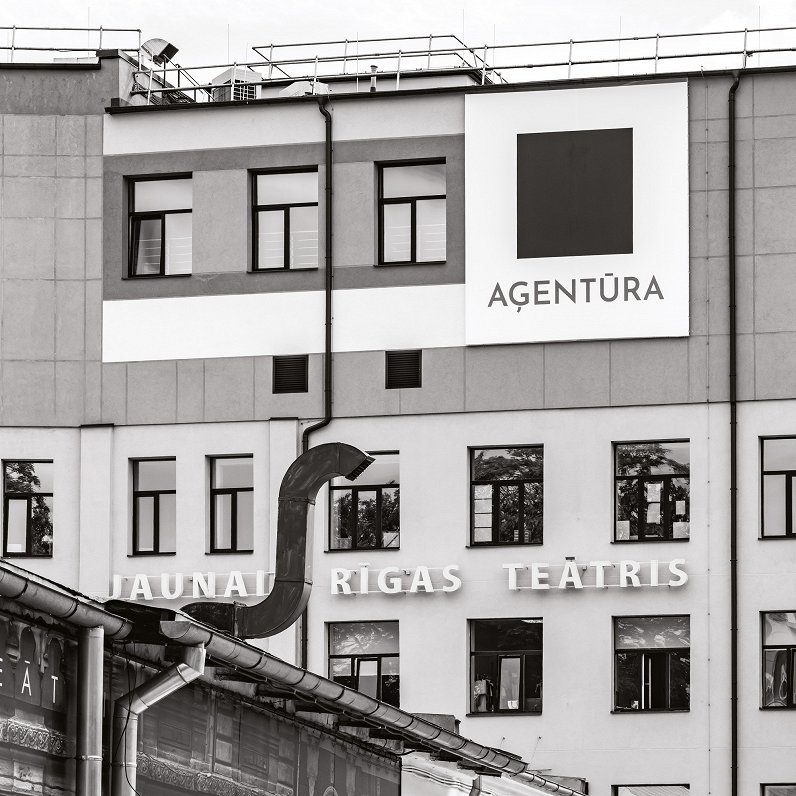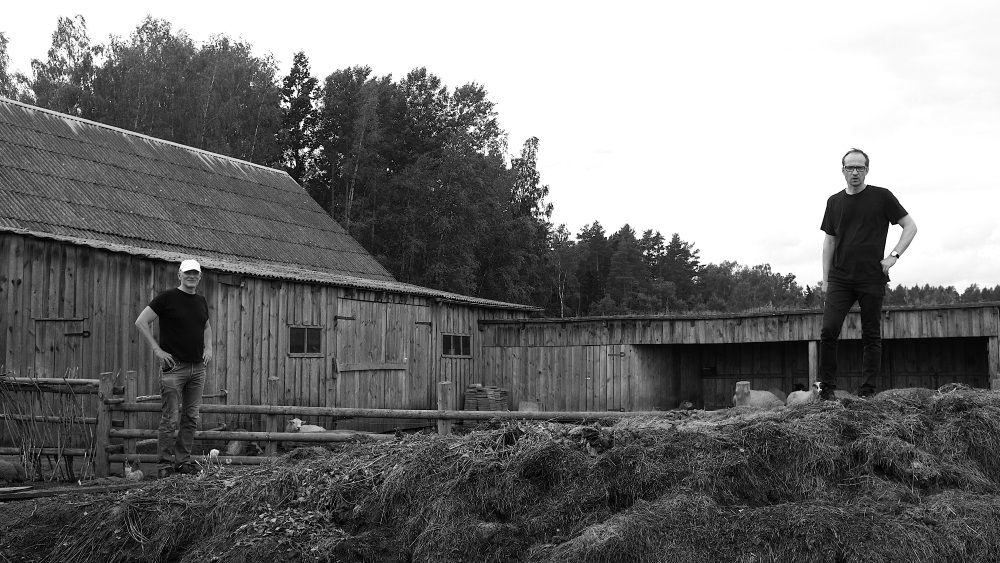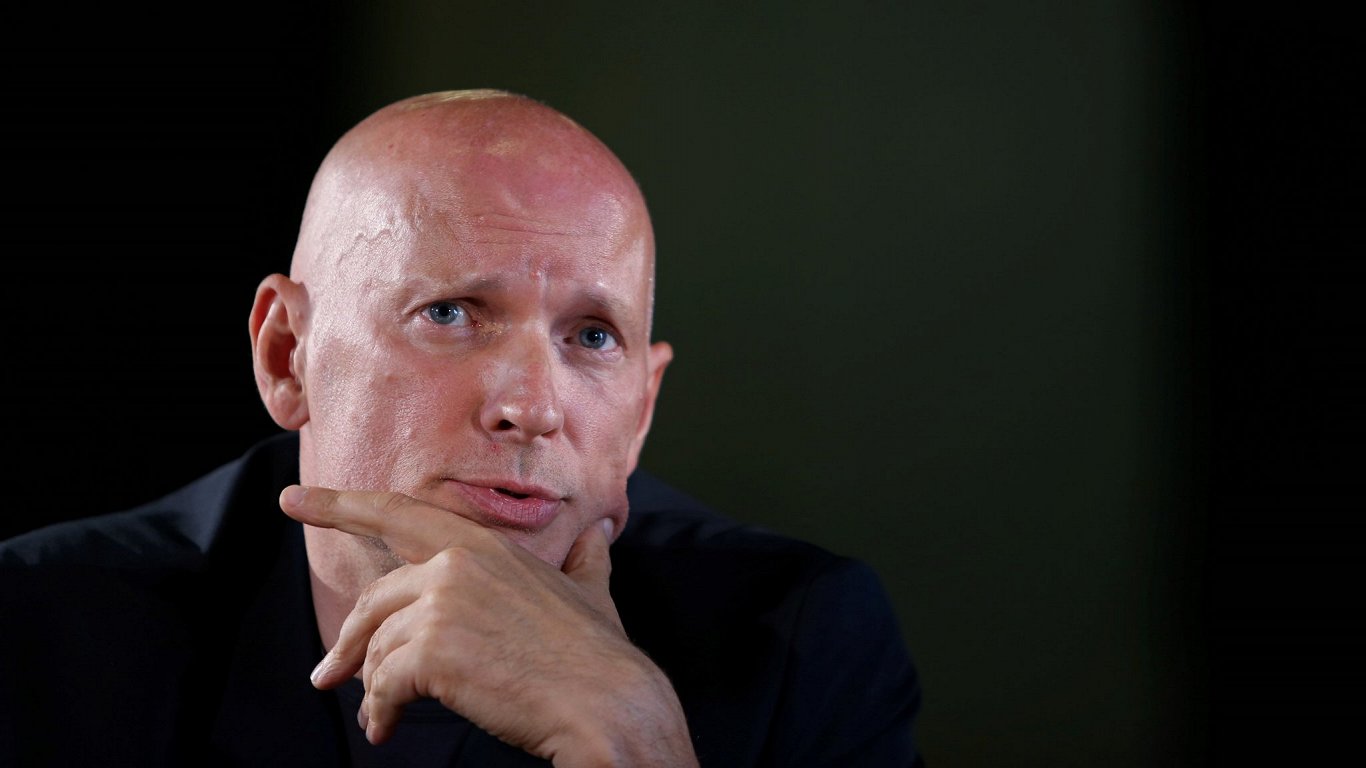From theater to series
A wide ensemble of actors participates in the multi-series art film: all actors of the New Riga Theater, and 3rd year students of the Latvian Academy of Culture JRT studio. In the Latvian Radio program “Kultūras Rondo”, the director and artistic director of the New Riga Theater, Alvis Hermanis, said that in any circumstances it is necessary to be able to find something productive, a new solution. This was also the basis of the idea of the series.
“When it all started last spring, everyone said from the beginning that there would be a second wave in the autumn. We anticipated that spectators will not be with us this winter. Therefore, we decided to make something that reaches as many viewers as possible, ”Hermanis explained.
The thematic orientation of the series continues to develop the theme, which the director started with such performances as “Long Life” and “Latvian Love”. “One of the many themes found in cinema is age and youth. A black and white frame is much more cruel than a color frame in a movie. The black-and-white shot shows the human face, especially close-up, much more cruelly, ”said Hermanis.
Another thematic line of the Agency is the depiction of the specifics of the advertising industry and public relations. Alvis Herman intended to create a theatrical performance about the ancestor of advertising and public relations, Edward Bernne, the godson of Sigmund Freud, but this theme has been partially developed in the series, so the director’s idea for the performance is no longer relevant.
The director emphasized the importance of the depiction of the city of Riga in the visual material of the Agency: “It will also remain as a documentary imprint of Riga in 2020. I don’t know in which Latvian film the city of Riga would have been shown so much; The urban Latvians of Riga, how they perceive life.
At least something will remain for the grandchildren. There is nothing left of the theater. ”
The main operator of the series is Mārtiņš Grauds, but Alvis Hermanis also highlighted the performance of the new operators.
“I would also like to say that, as far as the language of cinema and the visual concept, so far, only the name of Mārtiņš Graudas has been uttered. But two other brand new operators, Dāvids Smiltiņš and Andris Kudors, have a completely grand investment there. It was also a very interesting collaboration, because they are very young and have only recently received operator training. Since not only the old and the new meet in the film’s plot, the whole team was old and young professionals in the production of the film, ”said the director.
Alvis Hermanis revealed that various comments have been received both by phone in the theater and on social networks: “In reality, the attitude of the audience is felt even more than after the theater premieres.
Usually a few hundred people see the premiere of our theater, this time figuratively speaking, this figure is at least like “Arena Riga” – a lot of people have either seen or watched.
Opinions also come to us more than usual after theater performances. People who have bought, most likely they watch it with family and friends, have told me that students roll together for five euros and watch it all in a bunch. ”
The price of watching the multi-series art film “Agency” is fifty euros, but the director emphasized that the income from this project is not equal to the salary that theater employees receive under normal conditions.
Filming of the series “Agency”
Photo: Mārtiņš Grauds
–
–
“It simply came to our notice then. It must be said at once that no business will meet there. In theater, our salaries are five times lower than usual when there are theater performances. We, the theater staff, do not receive any additional remuneration for this film series. It seems to everyone that it is a big commercial event, but at best we hope to cover some of the money invested, because we attracted film professionals, cinematographers, editors, who had to pay, but we worked for ourselves, ”said Alvis Hermanis.
The creation of the series has also been important in working with students. The work done in the summer in filming is one of the evaluation criteria for this semester.
When I graduated from “Actors”, we had “Drama and Film Actor” written on my diploma, which was the name of the specialty. Now it is no more. I think they gained experience that will be useful for them professionally, ”explained Alvis Hermanis.
Continuing the interaction of cinema and theater, the director and world-famous ballet dancer Mikhail Baryshnikov also had the idea to film the performances “White Helicopter” and “Brodsky / Baryshnikov” in accordance with the specifics of cinema language.
“[Barišņikovs] expressed the idea that after the new year he could come to Riga sometime for a month. We could film both performances very carefully in which he has participated. Not as usual, as theater performances film the whole show with a couple of cameras, but as cinema – more carefully when the work is done frame by frame, ”said Hermanis.
The provocative power of art
Describing the basic function of art, the director noted that since the beginning of art and cultural history, its aim has been to provoke, emphasizing that this time can not be an exception. Provocation also has a place in a series of feature films.
“One example. The logo of our agency is a black square, which is a reference to Kazimir Malevich, and in one scene a police investigator tells us: “Did you know that laboratory examination revealed that under this black square Malevich has written in his hand” In Russian пещерe – Negroes battle in a dark cave? ”, art historians can attest to this fact. What should we do with this fact? Of course, all blinders and modern Communists and stucco would like us to keep it quiet, but we will not.
Art must be provocative, it can have no other task than to harass and hack society, so that society thinks with its own head. ”

Series “Agency”
Photo: Mārtiņš Grauds
–
–
“There are two ideologies that have coexisted at all times. Some who believe that art is a socio-political tool. And the other who thinks that art is an unusable thing and that is its value, ”explained Hermanis. “I, being a real person at heart, not a pseudo-liberal person, believe that everyone has the right to exist and all opinions have the right to be, and no one should oppose another’s opinion. I myself am not passionate about using art as a political weapon, but the younger generation in particular is doing it diligently. I’m not particularly excited about it, but I’ve done it. “
Hermanis emphasized the importance of the theater as a medium – the spectator’s job is to continue working with this information, mentioning the work of the historical research commission, which created a dialogue with historical and political events.
“It simply came to our notice then. Lilija Dzene did not know that a card had been written for her. We proved it. Latvian people all sing “День Победы” together on the Song Festival stage, we show the following video. Chekist shooters, after each working day, received a bucket of alcohol to wash their hands, and specially went to massage courses so that their index fingers did not atrophy the muscles from such frequent shooting. Putting these horrible facts together, the picture is simply extremely complicated, it is not unambiguous, and the viewer has to turn on his own thinking in order to deal with it all, ”explained the director.
Every work of art, whether in a theater or in a cinema, also needs a spectator. Published in the “Diary” published by “Neputns”, which the director wrote during the 2015 and 2016 seasons, it is written that the ideal viewer of the director was Normunds Naumanis. Hermanis discovered that Naumanis was not the only one:
“Actually, I have to mention that there was another very ideal spectator – it was Silvia Radzobe.
The ideal viewer, in my opinion, is one who is familiar with the context in the long run, who understands where those legs grow, who understands the prehistory of both meaning and aesthetics. ”
The context of both cinematic aesthetics and cinematic history is also important in a series of feature films. Herman admitted: “It is much easier for this film to connect with viewers who are familiar with the history of cinema, the same early black and white cinema of the 60s as Antonioni, Huciev, French, Italian black and white cinema.”
The fate of the boss – loneliness
Speaking about his work as the artistic director of the New Riga Theater, Alvis Hermanis told about the choice of actors for the theater.
“It’s a legend that’s not a legend at all. When I was appointed director of the New Riga Theater and when it was clear to me that, unlike Juris Rijnieks, I wanted to form a troupe of actors, because before that there were none, then to compile this list, I invited a group of young people home. theater directors: Gati Šmits, Gillinger, Regnārs Vaivars, Kairišs, and for each of them please write on paper a list of actors they would like to work with. Then I told them that we would take those in the troupe who would be on the three lists.
At the time, I was still a great Democrat.
I adhered to it very consistently. In this way, the core of this troupe was formed. It did not include a couple of actors who were only on my list, with whom I had already done several performances. They were then offended by me for the rest of my life, but I stuck to that principle. The actor must be one who is interested in several directors, because the actor will have to be able to work with different directors, ”explained Hermanis.
Speaking about the actors ‘work in front of the camera, Hermanis highlighted Kaspars Znotins’ work: “When I first saw Kaspars Znotins as an actor in student work, he seemed completely intolerable to me, it seemed to me that I would never want to meet such an actor at work.
Now, for example, in this film series Kaspars Znotins is doing things there that could be used in a textbook in Hollywood.
The actor’s existence in front of the camera is so extremely dense and intense that every second the actor gives new information. No typeface is filmed, but the actor fulfills his cinematic existence very intensively. It’s a profession, it only comes with experience. “

Filming of the series “Agency”
Photo: Mārtiņš Grauds
–
–
Hermanis also mentioned that the democratic approach initiated by him and the New Riga Theater team in creating performances has now become the norm in Latvian theater.
This “Agency” has also emerged as a product of collective work. For example, the script for “Agency” was made in three parts – one part was written by me, the other part was written by Jānis Joņevs and the third part was written by actors. Of course, we need one person who sees their overall picture, their overall construction. Theater is in any case a collective, democratic art. But one has to be the captain, otherwise the market ends up. If everyone has a veto, then in the end it is neither warm nor cold, ”explained Hermanis.
“Every boss has to make cruel decisions in the name of art.
This is inevitable. A boss cannot be a good person. If the boss is a good person, then nothing will happen with his works. I remember Olgerts Croder, I don’t know anyone who will resist that Olgerts Croder was a good person. However, he was also appointed director of the National Theater for a while. What did it end with? This is the fate of the boss, this is such loneliness. But the responsibility lies with him alone. It’s the same in theater performances, if the show comes together, everyone says it’s thanks to the actors, and if the show fails, then of course the director is to blame. It’s a universal saying that is known by heart all over the world, “said Herman.
–


